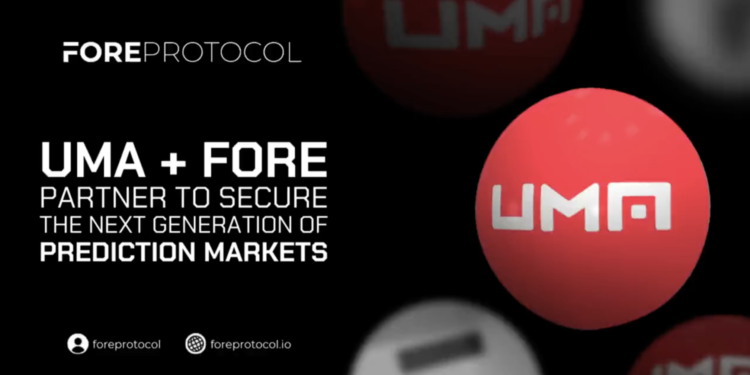The FORE Protocol and UMA collaborate to improve decentralized prediction markets. UMA’s Optimistic Oracle technology will be integrated into FORE, a peer-to-peer predictions environment, to improve market performance and dispute resolution.
UMA Technology Speeds Up Dispute Resolution in FORE Predict
In conventional prediction markets, a central authority determines outcomes, raising concerns about biases and manipulations. FORE Predict uses a network of decentralized analysts to independently assess market outcomes. However, these analysts may have disputes and need a reliable resolution method.
The FORE Predict platform’s Optimistic Oracle by UMA provides a clear and formal dispute resolution process. This system ensures fair and impartial dispute resolution, which is essential to predicting market integrity.
A resolver must submit a bond to support their market outcome claim in a dispute. The UMA decentralized validators resolve the dispute by validating the statement, creating a resilient and unbiased decision-making system.
The UMA Optimistic Oracle in FORE Predict has many benefits. First, the suggested approach shifts validation from FORE’s internal network to UMA validators, enabling more objective outcome evaluation. Additionally, UMA validators are independent of FORE. This independence eliminates conflicts of interest and ensures fair dispute resolution. The UMA arbitration process allows FORE Predict experts to resolve issues methodically and transparently, adding organization and equity. Finally, UMA technology is fast and effective, which is crucial in prediction markets. This technology speeds up dispute resolution, reducing delays and ambiguity.
Timothea Horwell Highlights Integration’s Significance
This cooperation goes beyond technology and represents a commitment to decentralized validation and community empowerment. The addition of UMA’s Optimistic Oracle to FORE’s prediction ecosystem shows how decentralized solutions can disrupt centralized validation sectors.
Timothea Horwell, a FORE Protocol co-founder, stressed the importance of this integration for decentralization, transparency, and fairness. The system authorizes a diverse and independent group of validators. In this way, it creates an inclusive and trustworthy prediction market ecology that the community can validate.























